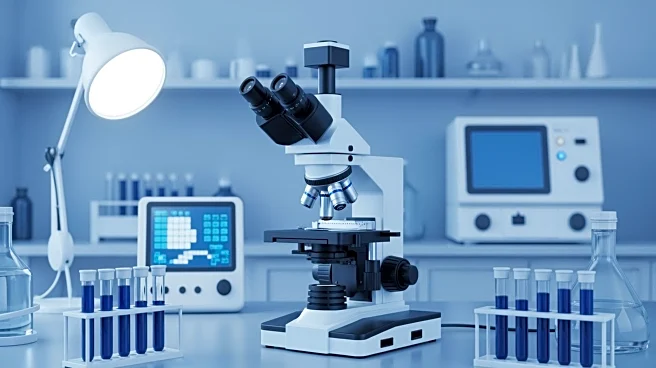What's Happening?
William Morice II, M.D., Ph.D., president and CEO of Mayo Clinic Laboratories, discussed the evolving role of diagnostics in precision medicine during a conversation with Fierce Biotech Publisher Rebecca
Willumson. Diagnostics, traditionally used for disease identification, are now pivotal in determining treatment strategies. Advances in diagnostic testing are enabling clinicians to tailor therapies based on the biological characteristics of diseases, such as cancer and immune responses. Morice emphasized that the future of innovation lies in leveraging the vast data generated by diagnostics. As fields like genomics, proteomics, and metabolomics advance, laboratories are developing comprehensive datasets that can predict disease risk, guide treatment decisions, and facilitate early interventions. The integration of artificial intelligence and digital tools is expected to further enhance the impact of diagnostics on patient care.
Why It's Important?
The shift towards precision medicine represents a significant transformation in healthcare, with diagnostics playing a crucial role. By enabling more personalized treatment plans, precision diagnostics can improve patient outcomes and reduce healthcare costs. This approach allows for targeted therapies that are more effective and have fewer side effects compared to traditional methods. The ability to predict disease risk and intervene early can also lead to better management of chronic conditions and potentially prevent diseases from developing. As the healthcare industry continues to embrace data-driven approaches, stakeholders including healthcare providers, patients, and insurers stand to benefit from more efficient and effective care delivery.
What's Next?
The continued development of diagnostic technologies and data analytics is expected to drive further advancements in precision medicine. As laboratories generate richer datasets, the potential for new insights into disease mechanisms and treatment options will grow. The integration of artificial intelligence will likely enhance the ability to analyze complex data, leading to more accurate predictions and personalized care strategies. Healthcare providers may need to adapt to these changes by investing in new technologies and training staff to utilize these tools effectively. Additionally, regulatory bodies may need to establish guidelines to ensure the safe and ethical use of diagnostic data.
Beyond the Headlines
The rise of precision medicine raises important ethical and legal considerations, particularly regarding data privacy and the use of genetic information. As diagnostic technologies become more sophisticated, there is a need to ensure that patient data is protected and used responsibly. The potential for disparities in access to advanced diagnostics also poses a challenge, as not all patients may have equal access to these innovations. Addressing these issues will be crucial to ensuring that the benefits of precision medicine are realized equitably across different populations.










